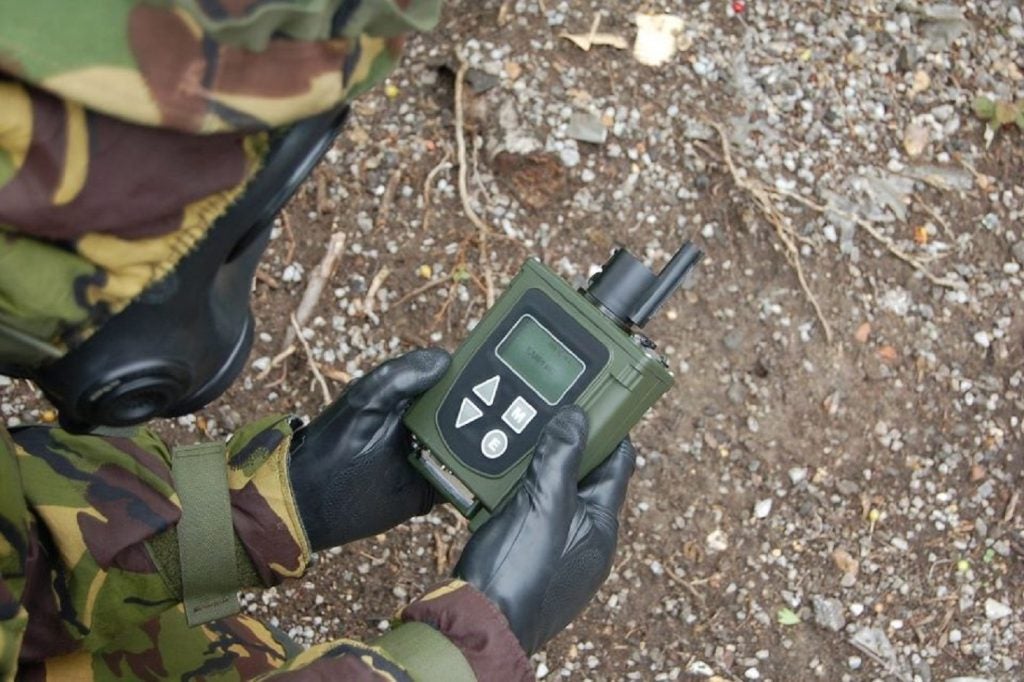The UK Ministry of Defence (MoD) is set to bolster the safety of its Armed Forces with an £88m ($108m) investment in chemical detection technology.
Spearheaded by Strategic Command and developed in partnership with UK chemical sensing technology company Smiths Detection, this initiative will equip military personnel with sensors capable of identifying and safeguarding against a range of toxic chemical threats by 2028.
This partnership, led by Strategic Command in collaboration with the British Army and Defence Equipment and Support, marks a stride toward protecting against chemical threats on the battlefield.
The core of this endeavour lies in the creation of three chemical detection products designed to serve as a safeguard for military personnel in various operational scenarios. These products include:
Wearable personal agent sensor
This wearable device offers real-time monitoring of the environment surrounding the user, enabling the detection of toxic chemical threats. It is set to become a gear component for thousands of personnel across the British Army, Royal Navy, and Royal Air Force.
Survey chemical agent sensor
A portable tool tailored for inspecting potentially hazardous areas and surfaces. It will enable on-site safety assessment, ensuring no threats go unnoticed.
Remote capable, standoff chemical sensor
An advanced sensor designed for use in fixed locations. This technology will provide an added layer of security to strategically essential areas by continuously monitoring for chemical threats.
One of the features of these chemical sensors is their adaptability. As new hazards emerge in the future, the equipment can be continually updated and improved, expanding its capacity to identify a broader range of chemical threats.
Minister for Defence Procurement, James Cartlidge, said: "Not only is it an impressive piece of equipment that will be designed and manufactured here in the UK, but the ability for it to be continually developed and improved is exactly how we want Defence procurement to be – deliverable, effective and ambitious."
With nearly 70 years of working in chemical sensing technology, Smiths Detection will take the lead in developing and manufacturing these devices. Smiths Detection have previously been contracted by General Dynamics to deliver chemical agent LCD 3.3 detectors for the Ajax programme, to assist crew members with early warning of any chemical warfare attack.
The contract, placed by the UK MoD's procurement arm Defence Equipment and Support and supported by the Defence Science and Technology Laboratory, encompasses the programme's development, manufacture, and initial in-service support.
This initiative, born out of the Defence and Security Industrial Strategy of 2021, is a step towards ensuring the safety and readiness of the UK Armed Forces against evolving chemical threats.
The UK Armed Forces are set to benefit from this investment, which hopes to promise enhanced protection on the front lines and bolster the nation's technological capabilities and economic growth.









